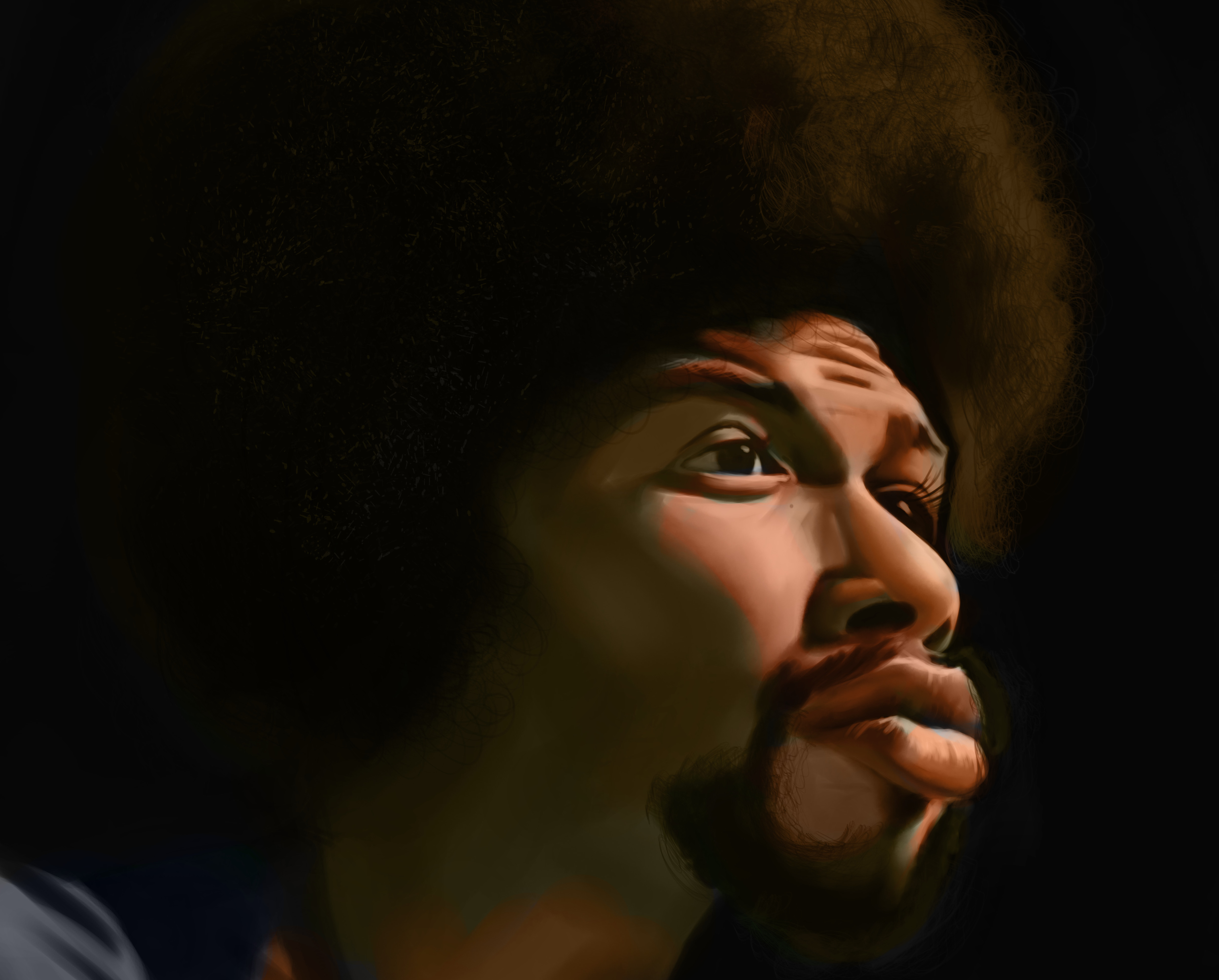Almost 70 years ago this month, on April 1, 1949, a young man named Gil Scott-Heron was born in Chicago, Illinois, whose writing and defiant creativity would go on to alter the worlds of music, self-expression and political activism forever.
Because of the similarities between his body of work and hip-hop artistry as we know it today, Scott-Heron has often been referred to as the “godfather of hip-hop.” However, for the most part, his style of music and poetry was more concerned with topicality than rhythm or rhyme.
In fact, several of his albums were composed primarily of spoken word and free verse soliloquy. At its core, rap is poetry with added elements, and it was his decision to insert social commentary into music’s easily consumable form that most substantiates the claim that he helped birth modern hip hop.
Indeed, many contemporary hip-hop and R&B grails, such as “To Pimp A Butterfly,” “My Beautiful Dark Twisted Fantasy” and “Black Messiah,” can all be considered offshoots of the life and work of Gil-Scott Heron. His work has been noted by the likes of Jay-Z, Talib Kweli, Kendrick Lamar and Kanye West as a source of inspiration.
In fact, on Kanye West’s “My Beautiful Dark Twisted Fantasy,” Scott-Heron can be heard on the album’s final monologue touching on different facets of American corruption. The bassy voice of Scott-Heron rings through the last few seconds of the project as he repeats, as if in an interrogation, “Who will survive in America? Who will survive in America?” It’s a question that still rings true today.
As the track comes to a close, slow claps creep in before the sound goes mute. Almost 50 years later and the words of Scott-Heron still resonate as fully as they did on his debut album, “Small Talk at 125th & Lennox.”
Scott-Heron released his final studio album, “I’m New Here,” in 2010, which was popularized by indie-pop artist Jamie XX, who remixed the project for his 2011 album, “We’re New Here.” Beyond Jamie and Kanye’s homages, Scott-Heron’s work has been remixed and reproduced countless times across numerous genres both before and after his death, further proof of the depth of his impact on music and the creative processes behind it.
Interestingly enough, the political climate that inspired Scott-Heron, that of the Vietnam War, the War on Drugs and the post-Civil Rights era, parallels the acrimony of the modern age, which is defined by police brutality, mass incarceration and The Trump White House. Perhaps there is no more fitting time for his anniversary than now?
Fortunately for that cause, Scott-Heron’s music has, if nothing else, serious transcending power. Songs like “Winter in America,” “Home is Where The Hatred Is” and “The Revolution Will Not Be Televised” still speak poignantly to moments of frustration in the face of oppression. But, instead of just an expression of discontent, his work relayed raw, resonant truths whose purpose was to lead to change.
Unfortunately, Scott-Heron battled crack and cocaine addiction all his life, and his substance abuse led him to serve jail time. He also tested HIV positive before the release of his 2010 project. In May 2011, he passed of sickness after returning home from a trip overseas, but it’s likely that his poor health caused some complications to arise from the sickness.
When you listen to hip-hop this month though, think of Gil Scott-Heron. It’s because of him and the hardships he endured that the music we enjoy now can be so freely confrontational: not for the sake of attention, however, but in the spirit of activism and empowerment.
“Who Will Survive in America,” by Gil Scott-Heron
Us living as we do upside-down
And the new word to have is revolution
People don’t even want to hear the preacher spill or spiel
Because God’s whole card has been thoroughly piqued
And America is now blood and tears instead of milk and honey
The youngsters who were programmed
To continue fucking up woke up one night
Digging Paul Revere and Nat Turner as the good guys
America stripped for bed and we had not all yet closed our eyes
The signs of truth were tattooed across our often entered vagina
We learned to our amazement, the untold tale of scandal
Two long centuries buried in the musty vault
Hosed down daily with a gagging perfume
America was a bastard
The illegitimate daughter of the mother country
Whose legs were then spread around the world
And a rapist known as freedom, free-DOOM
Democracy, liberty, and justice were revolutionary code names
That preceded, the bubblin’ bubblin’ bubblin’ bubblin’ bubblin’
In the mother country’s crotch
What does Webster say about soul?
”All I want is a good home and a wife
And a children, and some food to feed them every night”
After all is said and done, build a new route to China if they’ll have you
WHO WILL SURVIVE IN AMERICA?
WHO WILL SURVIVE IN AMERICA?
WHO WILL SURVIVE IN AMERICA?
WHO WILL SURVIVE IN AMERICA?

















